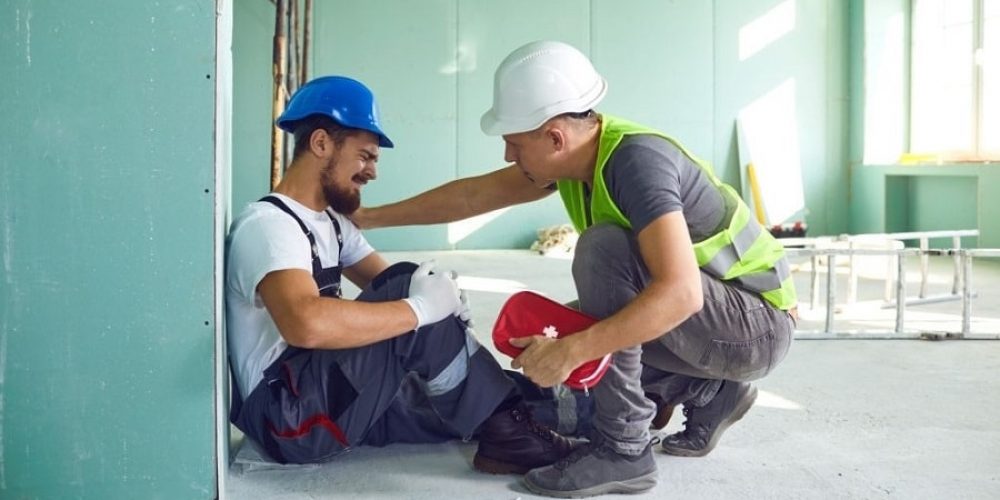You need an experienced personal injury lawyer at all phases of your case, especially during the make-or-break discovery process. The Riverside personal injury attorneys at Heiting & Irwin, APLC work to ensure that you are prepared at all key moments of your claim or lawsuit. We have recovered over $500 million for our clients.
A personal injury case is about a lot more than the trial. In fact, you will rarely ever reach a trial. If you do end up suing, you may go through the discovery process, where you may have a deposition taken. This moment is extremely important to your case, so it is vital that you know what to expect and are prepared.
If you are not represented and have a personal injury or wrongful death claim, call Heiting & Irwin today to speak to a Riverside personal injury lawyer who can help. Our premier personal injury law firm fights hard for you while endeavoring to provide you with attentive and compassionate service during a difficult time in your life.
Depositions Are a Key Moment in Discovery
If you file a personal injury lawsuit, you may reach the discovery phase of the case. Here, both you and the other party have the right to request evidence that is in the other’s hands. You could seek documents, texts and other physical evidence. You could also obtain factual evidence through the use of written questions or a deposition (oral questioning). Just like your personal injury attorney can depose the other party’s witnesses, they also have the right to take your deposition.
The deposition is one of the most crucial parts of your personal injury case. How you perform can go a long way towards determining the success and value of your claim. This will not take place in a courtroom. Instead, you will likely be in a lawyer’s office in a room with lawyers representing each party and a court reporter. There is no judge present, although the lawyers may call the judge if there is any dispute at a deposition that cannot be resolved.
What Questions You May Be Asked of Depositions
The other party’s lawyer has the right to ask you questions under oath (for up to seven hours!) The series of questions will be continuous for the entire time. The lawyer can ask you the following types of questions:
● Background questions about yourself: education, family, work history, etc.
● Things that lead up to the accident: the day of the accident
● What happened during the accident: in detail – who, what, when, where, why, how, etc.
● Questions about your injuries and your life after, and as a result of, the accident
Some of the questions may seem tedious, or even unrelated, but remember that a lawyer may have many reasons for many of the questions they ask you. The deposition is not a “Perry Mason moment,” when a lawyer is trying to play gotcha. Instead, you will probably be asked a long series of questions intended to elicit as much information as possible. The lawyer wants to know what you know, and get information that can lead to other information and sources, so they can effectively defend against your case.
Your trial testimony should not be inconsistent with what you have said at your deposition. Accordingly, the other party’s lawyer is going to try to get you on the record to “lock in” your testimony. They are also trying to see what kind of witness you would make at a trial. If you prove yourself to be competent, personable, and credible, it could bolster your position in settlement negotiations. However, you could also affect your case negatively, or even face a perjury charge if you are found to have lied under oath at a deposition, or hedge on questions or make a poor witness.
How Your Lawyer Helps Before and During the Deposition
After the opposing party’s lawyer finishes asking you questions, your Riverside personal injury attorney will also get to question you. If opposing counsel managed to “draw blood” during the questioning, your personal injury law firm may want to tie down some loose ends or clean up some areas where there could be problematic testimony. Your attorney is trying to build up your credibility as a witness and help you get the best possible testimony on the record.
Your personal injury law firm will help you prepare for the deposition and give you tips on questions and answers and that you may consider. They will work with you on how you answer questions in general (although the specific answers to the questions are yours, based on what you know). They would also be present in the room, “defending” you during the deposition and objecting to any questions that are improper. Your lawyer may request breaks when you appear to be getting tired. While you are the one who must answer the questions, your attorney’s presence in the room can be a valuable safety net that protects you when you are under stress. We are always happy to meet with our clients, as well, to fully prepare them for this daunting process.
Contact a Riverside Personal Injury Lawyer Today
Get in touch with Heiting & Irwin today to take the first steps towards potential compensation for your personal injuries. We offer free consultations to prospective clients, and you can schedule one by calling us today at 951-682-6400 or by messaging us online.



Comments 0